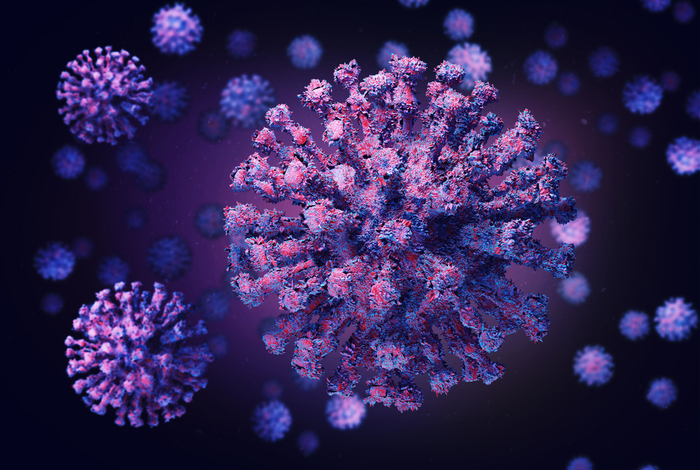Severe COVID-19 involves a distinctive reprogramming of gene activity in infected patients‘ immune cells, according to a study led by researchers at Weill Cornell Medicine.
In principle, this distinctive pattern could be detected in patients with blood tests as an aid to clinical assessment and on the pathology of severe COVID-19.
In the study, which was published Jan. 19 in the Journal of Leukocyte Biology, a team led by Dr. Lishomwa Ndhlovu, professor of immunology in medicine in the Division of Infectious Diseases at Weill Cornell Medicine, analyzed blood samples from nine patients with severe COVID-19. They tested white blood cells in the samples for their patterns of DNA methylation—chemical marks on DNA, also called epigenetic marks, that help determine which genes in the cells are active and which are silenced. In collaboration with research teams at University of California, San Francisco and Washington University in St. Louis, the investigators did the same for blood samples from uninfected healthy people, patients hospitalized with influenza, people newly infected with HIV and those co-infected with HIV and COVID-19.
The team found that, in comparison with the cells from other groups, those from patients with severe COVID-19 had a distinctive signature of methylation. Methylation at a given point on the genome normally silences the gene or genes near that point, and Dr. Ndhlovu’s team observed a pattern of more than usual methylation at genes that activate and/or are activated by interferons—immune signaling proteins that are important for mobilizing an effective antiviral response. They also observed an abnormal lack of methylation at inflammatory genes.
Other viruses are known to enhance their survival in infected hosts by altering epigenetic marks in host cells. The pattern seen by Dr. Ndhlovu and colleagues suggests that infection with the SARS-CoV-2 coronavirus, when it causes severe COVID-19, somehow reprograms immune cells to weaken the antiviral response but at the same time strengthen the general inflammatory response. This, Dr. Michael Corley, assistant professor of immunology in medicine in the Division of Infectious Diseases and first author of the study noted, was consistent with what researchers have observed in other studies of altered an immune system in severe COVID-19 cases. It also reflects what doctors generally have observed in such cases: an inadequate antiviral response leads to runaway inflammation and often fatal damage to the lungs and other organs. Also uncovered by the study was an increase in epigenetic age and decreased telomere length in the severe COVID-19 group compared to uninfected controls suggesting a higher mortality risk stratification.
The researchers suggest that in addition to helping with classifying severe COVID-19 and understanding the disease better, DNA methylation tests could also be used to help determine precise targets for future drug treatments of this disease.

